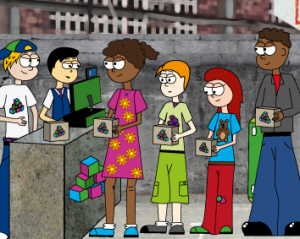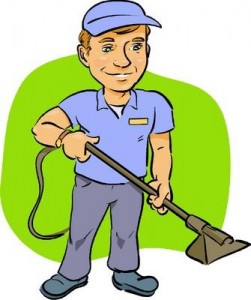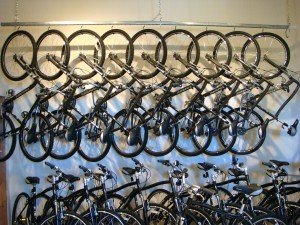What, who and where is my market?
What does it take to make a success of your small business… how can you avoid adding to those frightening statistics about failure rates of small business.
In this series of articles and associated webinars and workshops, by Roland Hanekroot you will learn the basic concepts and get the knowledge you need to become a successful ‘Business-Owner’, as opposed to a struggling ‘Business-Doer’.
Format
The format of each episode in the “First Steps” series is to explain the basics of the topic and then in line with the principles of New Perspectives business development programs, to suggest some small simple “First Steps” you can take straight away to put the knowledge into action.
3 Questions

What, who and where is my market?
Most of us business owners find ourselves in a market by accident. Not many of us start from scratch in a new market. We’ve either taken an existing business over from a previous owner or we’ve started our business doing something that we happen to be particularly good at and hence we’ve already had a couple of clients and a market from day 1.
Consequently we roll along doing more of what we’ve always done. Our recipe for success is our belief in ourselves and a vague notion that we’ll be able to do it better than the other guys, somehow.
The things that don’t set us apart

1) We give great customer service
2) For a great product
3) At a great price.
And I have no doubt that they do, believe that they do, or at least strive to.
There are two problems with these statements though:
1) The three statements are not special enough, they don’t offer enough value (Customers expect good service, good quality and good price from everyone… as a minimum)
2) And most importantly, all your competitors say exactly the same thing.
Who is the cheapest?
If you and your competitors make the same promise, the customer will make a decision on price because it is the easy factor to compare on.
In small business, there is nothing worse than being forced to compete on price, because there is always someone who is prepared to do it cheaper. You cannot build a long-term sustainable small business based around being the cheapest.
Find a tight niche
One of the most effective solutions to this problem is to find a tightly defined niche market that is either not serviced at all or is underserviced.
If you can find a niche market for your product or service that has few or no other business operating in, you can set out to own that niche and dominate it. Dominating a niche is a recipe for building a long-term sustainable business, like no other.
3 Niche questions
There are 3 questions you can ask to help you find such a niche:
1) Who does not currently use my product or service but might?
2) What are all the factors that we and all our competitors already compete on with each other?
3) On which factors are none of us competing?
I am going to work through a couple of examples to demonstrate how to go about finding a niche and stepping into it.
The carpet cleaners
Re question 1: ‘Who does not currently use my product or service, but might?’

One day you decide something has to change and together with your wife you start to have a look through your database of clients and jobs from the last 3 years. You are not sure exactly what you are looking for yet, but you hope to find a specific category of client or job that is either more profitable than the rest, or more fun to do, or is easier, or all of the above.
After an exhaustive search over many evenings, your wife mentions that she’s come across a few big 21st birthday party cleanups and an idea starts to form.
21st birthday parties
You decide to create a special offering and expertise in preparation and cleanup before and after big parties. Especially 18ths and 21sts can be massive messy affairs and a lot of anxiety goes along with them. How about offering a package that includes preparing the carpets for a big party with a protective spray application and then coming back the day after the party to do a thorough clean to make the house smell like new again?
A special package like this is actually not offered by anyone in your city and addresses a great need.
John and Mary’s Party Cleaning is born… a unique product and offering at a price level that you can make good profits on and best of all, prospective customers cannot compare on price.
Your business and your life will never be the same again… I guarantee it.
Kelvin’s bike shop

This story relates to questions 2 and 3: What factors are you and your competitors already competing on and what factors are you not competing on:
Selling bicycles is not easy because there is a lot of competition from many different sources. There are other bike shops all around the city; there is the ever increasing number of ‘Big Box retailers’ such as Big W and Kmart and the internet is increasingly impacting traditional retail models as well.
Kelvins shop was still doing just ok but the trends were not looking good at all, and pressure on his margins was constant.
Just at this time Kelvin came across a quote from a bikeshop owner in America, Chris Zane: “The only difference between our competitors and ourselves is the service we provide”
The fish pond

So Kelvin set about changing his approach to business completely. First Kelvin looked at all the factors he and his competitors fought over (price, range, convenience, friendly service, speed of delivery, connection with major sporting heroes etc)
Then Kelvin looked at what other factors there were that nobody competed on yet.
The insight that Kelvin had was that the greatest opportunity for his business, lay in creating long term customer loyalty through delivering truly extraordinary service, and absolute peace of mind.
Lifetime free stuff
For example, Kelvin implemented a life time free flat tire repair; Kelvin offered ‘no questions asked’ replacement guarantees for any bikes and products sold if you were dissatisfied with the product for whatever reason. Kelvin taught his staff that from now on the word NO was out of bounds and no request was to be rejected.
A couple of years later, Kelvin moved his store to a new location with three times as much space.
Kelvin created his own fishing pond and he was able to dominate it, year after year.
This is the topic we will be talking about at the March Small Business Masterminds ‘live’ workshop as well as the Masterminds online webinar, both on 10 April. If you would like to attend either the webinar or the workshop, go to http://smallbusinessmasterminds.com.au
Take the first steps:
As mentioned in the opening paragraphs of this article, I will suggest some “First Steps” actions you can take right away, that will get you started on implementing the topics and principles we discuss: The resources page is here: http://tiny.cc/marketlpage
Download the article from the resources page: “Blue Oceans and Empty Swimming Pools”, by Roland Hanekroot.
In a notebook ask yourself the first of the 3 niche questions above.
In your notebook ask yourself the remaining 2 niche questions above.
Download and print the “find your niche” worksheet here, and complete the worksheet.
“Blue Ocean Strategy” by W. Chan Kim and Renee Mauborgne is the Bible on this topic of finding a niche. It is a great read, link on the resources page http://tiny.cc/marketlpage
About the author and the Mastermind sessions

Every month Roland Hanekroot runs a business development workshop as well as a webinar called “The Small Business Masterminds” moreinformation here and to register for the next webinar or workshop, follow this link: The first time is free.

